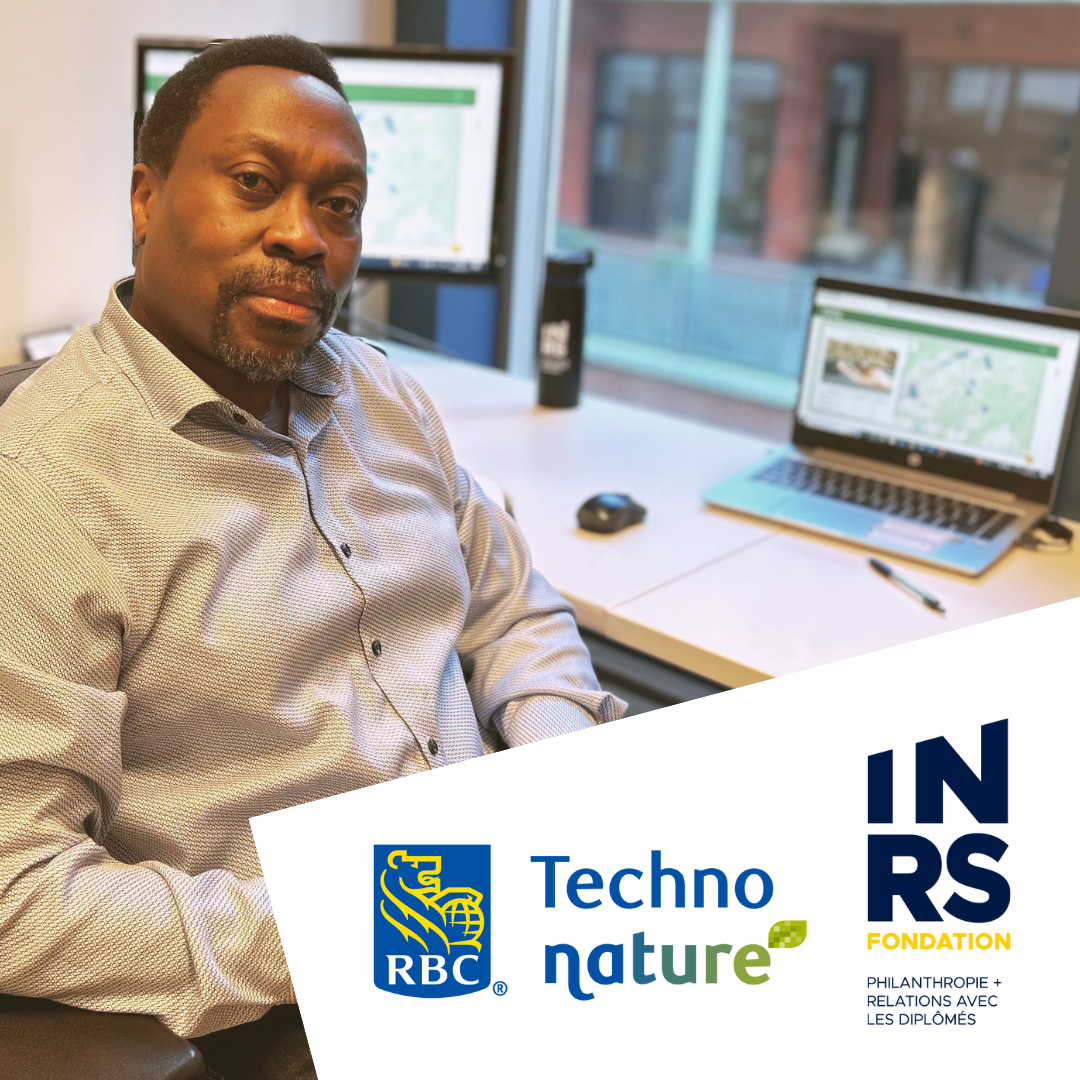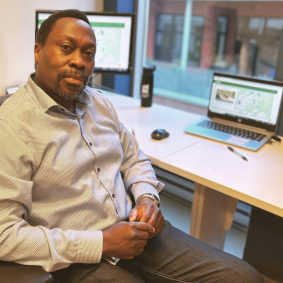
Major support to accelerate the recovery of fermentable residues in Quebec
The INRS Foundation team is pleased to announce full funding for the Impulsion INRS project led by Professor Kokou Adjallé to inventory and characterize fermentable residues in Quebec, thanks to financial support totalling $80,000 from the RBC Foundation through its Techno nature program.
“We launched RBC Nature Techno to support new ideas, technologies and partnerships that address pressing climate issues,” said Mark Beckles, vice-president, Innovation and Social Impact, RBC. That’s why we’re delighted to support the INRS Foundation, and the work being done as part of the project to map fermentable residues in Quebec with a view to turning these residues into bioproducts in a context of industrial synergy and the circular economy.”
At present, it is a challenge to have accurate, up-to-date data on the location, quantities, quality, and composition of organic residues, particularly those produced by the agri-food industry and other similar sectors. In addition, manufacturers are reluctant to share information about the materials they dispose of. The funding obtained will make it possible to design and implement a web platform that will promote the circulation of information by presenting a completer and more centralised inventory of fermentable residual materials, as well as a better understanding of the quantity and composition of these residues and facilitating more responsible and sustainable management.
At the heart of this initiative is a passionate team of scientists and students, led by Professor Adjallé, whose research focuses on environmental biotechnology and green chemistry. Their ambitious vision is to develop a dynamic web mapping platform providing a directory (locations and annual tonnage) of fermentable residues, their characterisation, and proposed avenues for recovery. This platform will enable integrated management of waste recovery into value-added products with a view to sustainable development.
“I’m delighted to receive the support of the RBC Techno nature programme for our fermentable waste mapping project. The results of this initiative will benefit the whole of Quebec. They will be made available to researchers at higher education establishments and research centres, municipalities and industries looking for low-cost raw materials and interested in industrial biotechnologies involving fermentation, as part of a circular economy concept.”
— Professor Kokou Adjallé, environmental biotechnology expert at INRS
The project aims to achieve concrete, measurable results in the sustainable management of fermentable residues in Quebec. It will help to compile more concrete information on these residues, which can be used in a variety of value-added processes (biopesticides, biofertilizers, bioinoculants, enzymes, biosurfactants, bioenergy, etc.).
“Quebec has been working for a long time to improve its management of residual organic materials, but previous approaches have focused on processes that under-cycle organic materials or manage them without regard for the uniqueness of their properties. This project will give us a better understanding of the fermentable residues available in Quebec, so that we are in a better position to create value-added bioproducts.”
— Professor Louise Hénault-Éthier, Director of the Centre Eau Terre Environnement
The final results of this detailed mapping project of fermentable residues in Quebec are expected in the fall of 2025 and promise to lead to better use of these resources, developing opportunities for business, economic growth, and job creation. The INRS Foundation and the INRS student and scientific community warmly thank RBC Foundation, through RBC Techno nature, for its generous support.
This project is one of the impact initiatives submitted by the INRS faculty community as part of the Impulsion INRS call for projects launched by the INRS Foundation to showcase INRS expertise to the business and philanthropic communities. Stantec Experts-Conseils also supported the project last year. The company provided start-up funding and put the research team in touch with the engineering firm's experts.
The Foundation’s team is delighted to have helped support this project and wishes Professor Adjallé and his team every success in their work!

